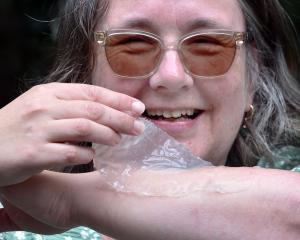
He told the recent New Zealand Medical Association's annual South General Practice Conference and Medical exhibition in Dunedin treatment alone was not enough.
Town planning and improving public transport were among changes required and, like alcohol, food price, accessibility, advertising and sponsorship by food companies would need addressing.
Increasingly, he saw the obese as having a food addiction. This was not yet scientifically validated but there was much research into it.
For 20 years, health professionals had suggested more moderate eating to their overweight patients but that had not worked.
It was known that people with severe alcoholism recovered if they abstained from alcohol, but those with less severe dependence could recover with a moderation approach. A similar approach could be applied to obese patients.
In Christchurch, 25 participants in two ongoing obesity treatment studies, one of which started 15 months ago, were using abstinence from certain foods as an addiction interrupter.
The more compulsive the eating, the more abstinence from certain foods made sense.
Prof Sellman said overcoming a food addiction was not a five-week project, but more like a five-year one.
Recovery involved picking up the good pieces from the person's old lifestyle, developing the new lifestyle and practising that new lifestyle, eventually leading to self management.
Everybody who became an addict did so through an apprenticeship and food addiction was no different.
"You don't become a compulsive overeater by going to [a fast food restaurant] and saying 'Great, I'm becoming a food addict'."
It was frequent experiences that sparked the brain.
A list of 50 non-essential energy-dense but nutritionally deficient foods had been developed and people in the studies were asked to identify those they should abstain from.
This was quite complex and quite different for each of those involved, although most had about 10 foods.
The list included such things as fried foods, muffins, cakes, pies, condensed milk, ice cream, chocolate, alcoholic drinks, most fruit juices and fruit rollups.
Over time, the abstinence foods started to lose their power, he said.
Part of the programme followed in the study involved daily weighing and weight recording.
Prof Sellman said this was initially resisted, but over time most saw it as a way of regaining control and keeping it.
Perserverance, 20 minutes of daily moderate exercise and participants not putting off being happy until they had lost a certain amount of weight were also promoted in the programme.
A collaborative approach was adopted, with the participants being regarded as co-investigators.
A larger follow-up study involving 90 to 100 obese Christchurch outpatients was being planned.












